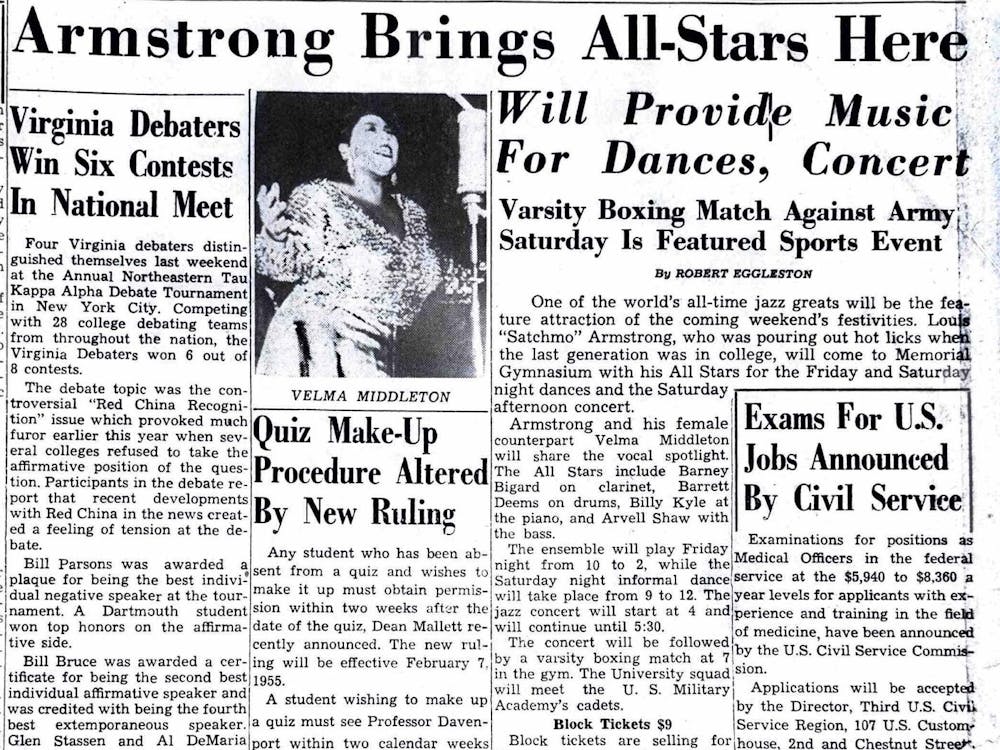If you are facing a long drive home and suffer from ADHD, Ritalin may help you get home safely.
Three recent University studies are shedding light on the controversial stimulant Ritalin, which doctors say has been over-prescribed in recent years and is sometimes touted as a miracle drug to improve concentration.
A report published last week by University Health System researchers in the Journal of Nervous and Mental Disease found that Ritalin, the drug commonly used to treat Attention Deficit Hyperactivity Disorder, can improve driving in young men with ADHD.
ADHD is a common disorder which prevents individuals from focusing their attention on specific tasks for an extended amount of time.
Dr. Daniel Cox, principal investigator of the study, said that individuals with ADHD are three to five times more likely to receive traffic violations and get into automobile accidents than those without ADHD.
Cox tested men between the ages of 19 and 25 in a computerized simulation that generated rush-hour driving conditions.
Cox and Dr. Larry Merkel, a co-investigator in the study, tested two groups of six men -- half that took a placebo drug and half that took Ritalin. The study monitored the groups for steering and braking ability as well as speed control and then gave each driver a score.
The researchers found that the group who took Ritalin received much higher scores.
Cox attributes this significant difference to Ritalin's ability to control various ADHD symptoms known to inhibit driving ability.
"We know it improves concentration, limits impulsiv[eness] and helps them pay attention to the environment better," Cox said.
Some psychiatrists believe that ADHD occurs because of a chemical imbalance in the brain. The frontal lobe of the brain controls attention and ability to concentrate. Scientists currently do not completely understand Ritalin's ability to calm ADHD symptoms but know it raises the levels of neurotransmitters such as dopamine in the brain's frontal lobe.
"We only know that Ritalin works in about 70 percent of children diagnosed with ADHD. Those that respond positively to it focus more and are able to have sustained attention," Maegen said.
This ability to increase attention is what makes Ritalin helpful for those who suffer from ADHD when they drive, Maegen said.
In another Ritalin study, Cox and co-principal investigator Jennifer Penberthy studied the brain activity of ADHD children to determine possible ways to better diagnose ADHD. Their project observed the consistency of brain waves as ADHD and non-ADHD children switched attention from one task to another.
ADHD children "tend to hyperfocus on one thing, so they're good at concentrating on things like computer games. But the difficulty comes when they must shift from that," she said.
Cox and Penberthy used an electroenchephalogram to monitor brain wave activity and found that brain wave activity fluctuated in ADHD children while remaining stable in the other group.
This study was the first of its kind in the country to use EEGs to diagnose and safely treat ADHD.
Despite these studies, some people think ADHD is not as serious a disorder as some doctors make it out to be.
Diagnoses are "only based on reports of what parents and teachers see at home and in the classroom. So you can easily misdiagnose ADHD," Penberthy said.
EEG graphs help add an objective test to the evaluation process and give the disorder more medical credibility.
EEG graphs "show there is a real disorder in the brain. [They] make it real," she said.
In yet another development regarding Ritalin, University pediatrics Prof. James Blackman is compiling a computer program that will help doctors prescribe stimulant drugs, such as Ritalin, for hyperactive children. Blackman's program, called "Informed Prescription of Stimulant Drugs for ADHD" will be released later this year.
The program will allow primary care physicians to quickly observe whether stimulant drugs would be effective for individuals with ADHD.
"The purpose is to help primary care physicians better assess the conditions by which children are prescribed stimulants," Blackman said.
It is possible prescribed drugs work only through a placebo effect, Blackman said. This limits the drug's credibility in treating the medical symptoms.
"What we're working on is finding out if Ritalin really is making a difference," Blackman said.
Physicians will use the software program after an initial diagnosis to administer blind tests in which children take either a stimulant or a sugar pill over a span of a few weeks. Parents and schoolteachers then observe the children's behavior and record it in a log book.
These tests are time-consuming and complex, which often discourages physicians from doing the tests, Blackman said.
Despite all these promising advances in the study of ADHD, researchers are still left with questions about the disorder.
For example, doctors note that Ritalin has been known to cause depression, insomnia, suppressed appetite and stunted growth.
Nevertheless, they remain hopeful that the stimulant will lead them to the cause of ADHD.
"I'm certain that the discovery of several genes someday will uncover the reason behind ADHD," Blackman said.






